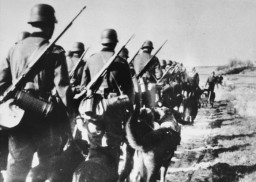You searched for: 缅甸赌场,缅甸实体赌场,缅甸果敢赌场,【www.2kk4.com,复制打开网址】,缅甸老街赌场,在线博彩平台,缅甸赌场网址,缅甸线上赌场,果敢实体赌场网址,果敢赌博网站,果敢网上赌场,缅甸网上合法赌场,缅甸博彩公司,2kk4.com网址KAKhfxfBBfxgKgxdEh
<< Previous | Displaying results 151-175 of 328 for "缅甸赌场,缅甸实体赌场,缅甸果敢赌场,【www.2kk4.com,复制打开网址】,缅甸老街赌场,在线博彩平台,缅甸赌场网址,缅甸线上赌场,果敢实体赌场网址,果敢赌博网站,果敢网上赌场,缅甸网上合法赌场,缅甸博彩公司,2kk4.com网址KAKhfxfBBfxgKgxdEh" | Next >>
-
1944: Key Dates
ArticleExplore a timeline of key events during 1944 in the history of Nazi Germany, World War II, and the Holocaust.
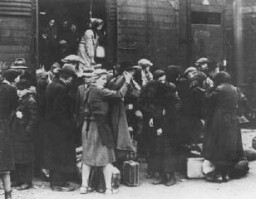
-
The Nazi Olympics Berlin 1936: African American Voices and "Jim Crow" America
ArticleAfrican American athletes, facing racism at home, also debated whether to join or boycott the 1936 Olympic games in Germany, then under a racist dictatorship. Learn more.
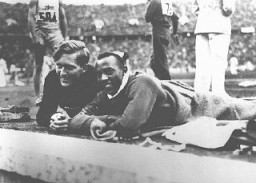
-
German Armed Forces High Command
ArticleThe German Armed Forces High Command, headed by Hitler, directed Germany’s armed forces before and during WWII. It was deeply complicit in the Holocaust and other crimes of the Third Reich.
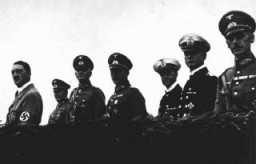
-
Adolf Hitler: Key Dates
ArticleLearn about some key dates in the life of Adolf Hitler, one of Europe's most ruthless dictators, who led the Nazis from 1921 and Germany from 1933-45.
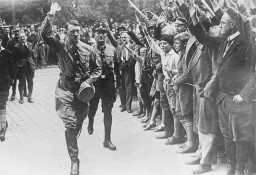
-
The Rosenstraße Demonstration, 1943
ArticleIn February/March 1943, non-Jewish Germans protest the incarceration of their Jewish family members at Rosenstrasse 2-4 in Berlin. Learn about the impact of the protest.
-
Page 5 of passport issued to Setty Sondheimer
DocumentPage 5 of a passport issued to Setty Sondheimer by the German Consulate in Kovno on January 29, 1938. This page contains three visas: (1) visa for Kovno valid from August 27, 1940, until December 31, 1940 (2) a second visa for Kovno valid until June 30, 1941, and (3) first visa for Yokohama, Japan, valid from June 7, 1941, until June 30, 1942. Unable to emigrate from Japan, Setty remained there until she was able to emigrate to the United States in 1947. [From the USHMM special exhibition Flight and…
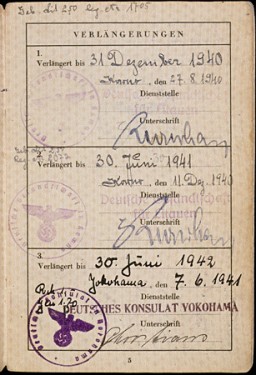
-
Displaced persons leave for the United States
FilmAt the end of World War II, the Allied powers in Europe repatriated from Germany millions of displaced persons (DPs). The remaining 1.5 to 2 million DPs—both Jews and non-Jews—refused or were unable to return to their prewar homes. Immigration restrictions precluded the large-scale admission of these refugees to other European countries and the United States. They remained in occupied Germany until they could arrange to settle in another country. In this footage, filmed more than four years…
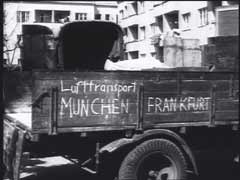
-
European Jewish population distribution, ca. 1933
MapJews have lived in Europe for more than two thousand years. The American Jewish Yearbook placed the total Jewish population of Europe at about 9.5 million in 1933. This number represented more than 60 percent of the world's Jewish population, which was estimated at 15.3 million. Most European Jews resided in eastern Europe, with about 5 1/2 million Jews living in Poland and the Soviet Union. Before the Nazi takeover of power in 1933, Europe had a dynamic and highly developed Jewish culture. In little more…

-
Theresienstadt: Transit Camp for Czech Jews
ArticleLearn more about Theresienstadt’s function as a transit camp and the deportation of Czech Jews during World War II.
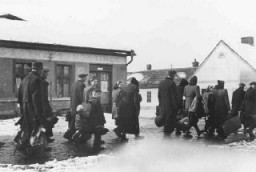
-
Einsatzgruppen: An Overview
ArticleEinsatzgruppen, often called “mobile killing units,” are best known for their role in the murder of Jews in mass shooting operations during the Holocaust.
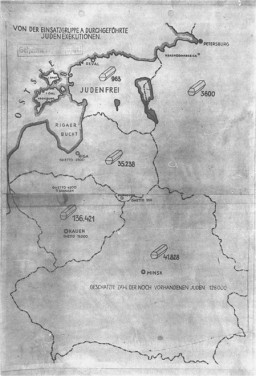
-
World War II in the Pacific
ArticleThe United States declared war on Japan on December 8, 1941, following the attack on Pearl Harbor. Learn more about World War II in the Pacific.
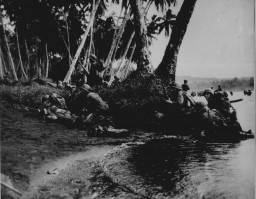
-
Dora-Mittelbau: Overview
ArticleOriginally a subcamp of Buchenwald, Dora-Mittelbau became the center of an extensive network of forced-labor camps for the production of V-2 missiles and other weapons.
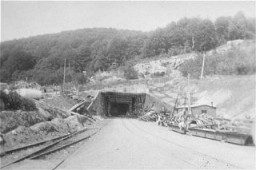
-
Jewish Uprisings in Ghettos and Camps, 1941–44
ArticleUnder the most adverse conditions, Jewish prisoners initiated resistance and uprisings in some of the ghettos and camps, including Bialystok, Warsaw, Treblinka, and Sobibor.

-
German Railways and the Holocaust
ArticleThe European rail network played a crucial role in the implementation of the Final Solution. Millions were deported by rail to killing centers and other sites.
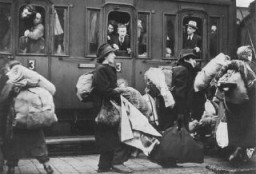
-
Voyage of the St. Louis
ArticleThe voyage of the St. Louis, a German ocean liner, dramatically highlights the difficulties faced by many people trying to escape Nazi terror. Learn more.
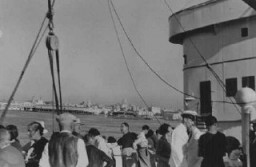
-
Rwanda: The First Conviction for Genocide
ArticleThe first conviction for the crime of genocide came after the 1994 genocide in Rwanda, when Jean-Paul Akayesu was found guilty of genocide and crimes against humanity.
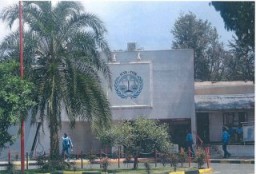
-
Edward R. Murrow
ArticleUS radio and TV journalist Edward R. Murrow reported live from London during the Blitz; he also broadcast the first eyewitness account of the liberation of Buchenwald.
-
Röhm Affair
Timeline EventJune 30-July 2, 1934. On this date, Adolf Hitler ordered the Röhm Purge (also known as the "Night of the Long Knives").
-
World War I and the Armenian Genocide
ArticleMass atrocities and genocide are often perpetrated within the context of war. Learn more about World War I and the Armenian genocide.
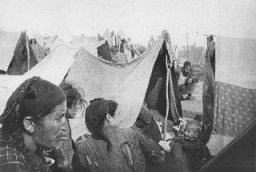
-
The 8th Infantry Division during World War II
ArticleThe 8th Infantry Division participated in major WWII campaigns and is recognized for liberating the Wöbbelin subcamp of Neuengamme in 1945.
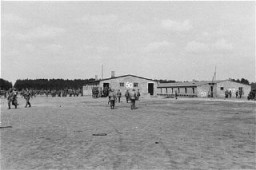
-
The 82nd Airborne Division during World War II
ArticleThe 82nd Airborne Division participated in major WWII campaigns and is recognized for liberating the Wöbbelin subcamp of Neuengamme in 1945.
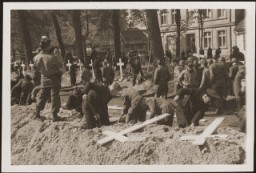
-
The 30th Infantry Division during World War II
ArticleThe 30th Infantry Division participated in major WWII campaigns and is recognized for liberating the Weferlingen subcamp of Buchenwald in 1945.
-
Nazi Medical Experiments
ArticleGerman physicians conducted inhumane experiments on prisoners in the camps during the Holocaust. Learn more about Nazi medical experiments during WW2.
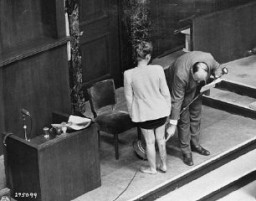
-
The Farhud
ArticleThe Farhud (pogrom), an outbreak of mob violence against Baghdad Jewry in June 1941, was a turning point in the history of Jews in Iraq. Learn more
-
World War II: In Depth
ArticleGermany started World War II in Europe on September 1, 1939, by invading Poland. War would continue until 1945. Learn more about key events in the history of WWII.
